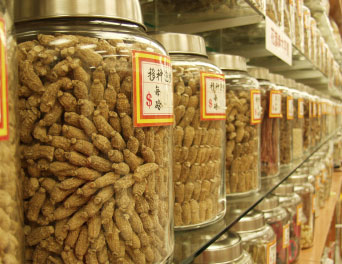Chinese Medicine for PID and Infertility

Many of the acupuncture continuing education online courses at HealthCMi feature methods to treat infertility. One of the major causes of infertility is pelvic inflammatory disease (PID). Our courses cover this topic extensively both in the live webinar series and the instant, anytime courses that can be downloaded to your computer at any time. In the USA, over 750,000 women experience an episode of PID annually and over 100,000 women become infertile as a result of PID. This disorder is often asymptomatic but a careful patient history during intake may reveal many clues.
An acupuncturist may want to look for the signs and symptoms of salpingitis, fallopian tube inflammation. This form of PID is usually caused by an infection but may also be caused by Liver Qi stagnation transforming into internal heat. The latter diagnostic pattern is not recognised in the field of biomedicine and is therefore not a consideration when patients visit a conventional biomedicine clinic. As a result, many forms of PID may be misdiagnosed as other disorders such as irritable bowel syndrome, endometriosis and colitis. Ultimately, chronic PID may go undetected because it is often asymptomatic, insidious and high-paced clinics with ten minute appointments are unable to spend the time necessary to complete a proper intake. Laboratory blood work is often insufficient and, in many cases, only a specialist such as a gynecologist will be able to detect chronic PID. Ultrasonography may not detect this condition and it may only be detectable by laparoscopy in the biomedicine setting.
Salpingitis may lead to fallopian tube blockages. This occurs when Damp Heat leads to Blood stasis. This is when the infection and inflammation leads to the formation of scar tissue. In addition, residual serious fluid and pus may cause pain during menstruation and bowel movements. This may also cause pain upon sitting and standing when the fluid moves downward between the uterus and the large intestine.
The major indications for any form of PID are a combination of lower abdominal pain combined with leukorrhea. Patients experiencing the signs and symptoms of fallopian tube blockages may often resolve this condition by taking a modified version of the herbal formula Gui Zhi Fu Ling Wan. This is a combination of herbs to cool heat in the Blood, remove Blood stasis, circulate the Qi and to clear heat and toxins. An effective combination is: Gui Zhi, Fu Ling, Mu Dan Pi, Tao Ren, Chi Shao Yao, Huang Qi, Zao Jiao Ci, Xiang Fu, San Leng, E Zhu and Bai Jiang Cao. This combination is never administered to pregnant women due to its blood invigorating properties.
Bai Jiang Cao (Herba cum Radice Patriniae) is an important herb in this formula, particularly when heat and toxins are prevalent. Bai Jiang Cao helps to clear heat and toxins and to remove blood stasis. This makes Bai Jiang Cao an essential herb for the treatment of chronic PID. Another important herb is Chi Shao Yao. This herb invigorates and cools the Blood. It has the special function of removing Blood stasis from the uterus.
There are many diagnostic patterns and treatment techniques a licensed acupuncturist has to treat all forms of PID including cervicitis, oophoritis, salpingitis, broad ligament infection and endometritis. HealthCMi acupuncture continuing education courses review important methods to differentiate PID from ectopic pregnancy, appendicitis and endometriosis. Even in cases when acute PID is so severe that immediate hospitalization is required, it may be necessary to to follow-up at a later date to clear residual pathogenic factors that lodge in the connective tissues of the pelvis. A combination of acupuncture and herbal medicine is effective for resolving this chronic problem that is often treated with multiple exploratory surgical procedures in the biomedicine setting when antibiotics are ineffective.


